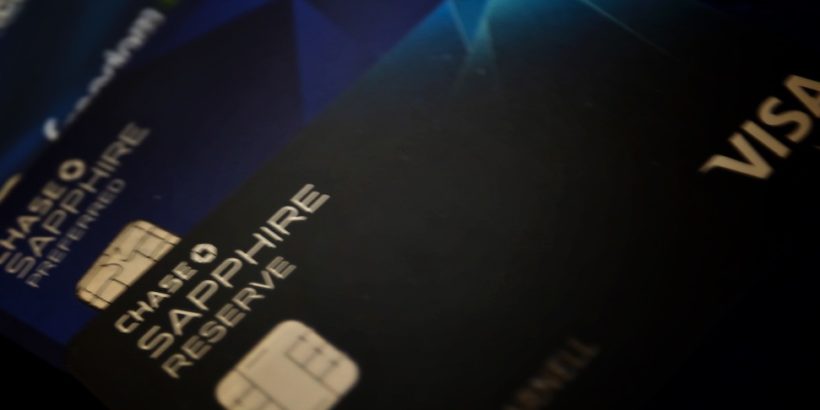It looks like Chase might have been a little too ambitious with the release of its prized-product, the Chase Sapphire Reserve credit card. In fact, reports via the WSJ (paywall), indicate that insiders at JP Morgan are worried that the Sapphire Reserve won’t actually make money.
Chase is so worried that their rumored to be “pushing for about $200 million in fresh cost cuts” in the unit that oversees the Sapphire Reserve. What these costs cuts will entail is anybody’s guess. I’ve said since the get-go that I didn’t think the Sapphire Reserve was sustainable and some credit card issuers like Citibank even stated the same (I’m sure other issuers have said the same). The travel credits, broad Priority Pass access, and broad $300 travel credit just seemed like too much and cards like this are known to drop benefits and devalue over time.
While Chase is pushing for cost cuts in the short-term, their game plan has always been focused on the long-term. Their aim with the Sapphire Reserve was to get “millennials” on board with Chase and establish lasting relationships with them that might spill over into selling them other products, such as mortgages. Many millennials are settling into better paying jobs and so the future value of this market is very high. “[Millennials’] wealth is expected to grow at the fastest rate of all generations over the next 15 years,” as Gordon Smith, CEO of consumer and community banking at Chase stated.
J.P. Morgan Chairman and Chief Executive James Dimon said, “You expense the acquisition costs over 12 months. The benefit comes over seven years.” Regardless of how long Chase expects to see the return in value, if they positioned this card too high, they’ll surely start cutting down perks well before those expected returns.
What’s the problem?
The problem for Chase right now is that consumers are showing to be much more knowledgable about rewards and carrying fewer balances than expected. This means that Chase is not making as much from interest payments and paying out more in rewards than they expected. If there’s a mass exodus of Reserve cardholders in the next couple of months, Chase will really be feeling the sting more than they expected because they’ll also lose out on annual fees not to mention interchange fees.
As stated, it’s hard to guess at what perks Chase would slash. In the article they mention “eliminating waste” which doesn’t really sound like cutting out benefits, but I’m not convinced that won’t happen. If I had to guess at some point we’ll either see a reduction in Priority Pass benefits or reduction in the $300 travel credit (or both). I think 3X on dining and travel will stay as millennials have shown to be big spenders in those categories and that’s what really makes the Reserve stand out in my eyes.
It will be really interesting to see what market segments hold on to their Reserve cards after the next few months. I see the market segment for the Sapphire Reserve as being mostly being geared to millennials/young professionals with decent to high incomes versus The Platinum Card® from American Express, which caters mostly to truly affluent individuals (although with recent changes like Uber credits Amex is clearly tapping into this market).
I also think the Reserve caught on to a lot of “one-offer’s” who love to jump on a great deal but aren’t necessarily interested in keeping up with credit card rewards. So I’m very curious to see who is left standing after the next few months and what effect that will have on the Sapphire Reserve. According to the WSJ article, customer renewal rates for premium credit cards can range from 60% to 90%, so that’s a wide margin that Chase could be looking at.
I recently wrote about why the Sapphire Reserve is still king but they’ve got to keep their eyes on American Express because if the Reserve lost any perks and the Platinum Card picked up even modest bonus earning rates on something like dining then I think we’d be looking at a new top contender.
If you’re thinking about canceling your Sapphire Reserve I suggest reading this article before making your decision.
Daniel Gillaspia is the Founder of UponArriving.com and the credit card app, WalletFlo. He is a former attorney turned travel expert covering destinations along with TSA, airline, and hotel policies. Since 2014, his content has been featured in publications such as National Geographic, Smithsonian Magazine, and CNBC. Read my bio.


2 comments
Comments are closed.